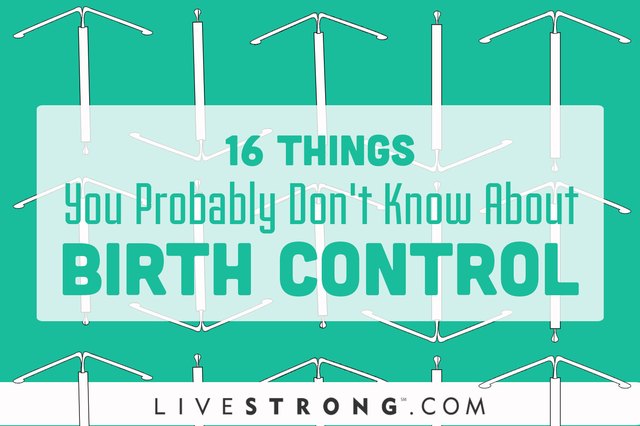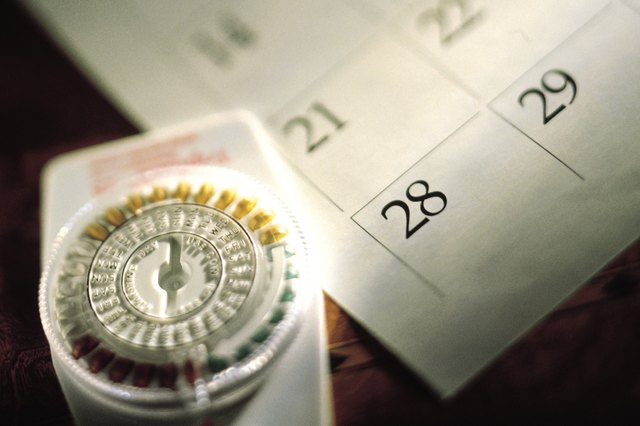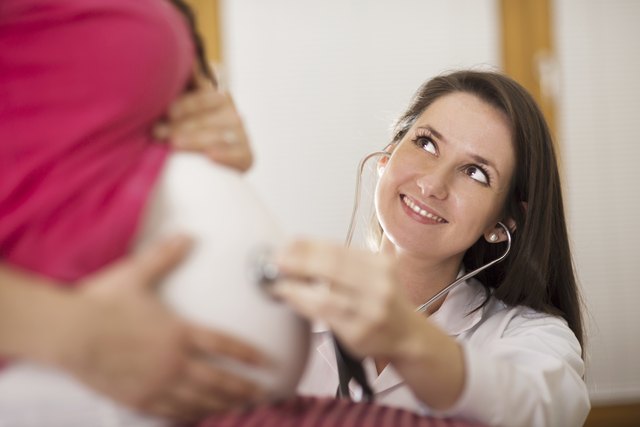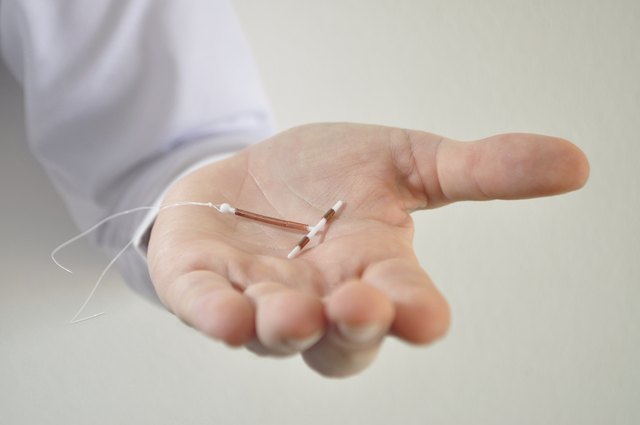According to the Centers for Disease Control and prevention, 99 percent of sexually active women in the United States between the ages of 15 and 44 use a contraceptive method during childbirth, whether it's a pill, condom or other method. So you're probably familiar with all kinds of ways to prevent pregnancy. In other words, you may have unanswered questions. For example, have you ever thought that birth control pills can make you gain weight, or that using an IUD can lead to infertility? There is still a lot of mysterious and wrong information, as well as new research, that can help answer some of these questions. We looked at recent research and talked to top experts to clarify the issue. Of course, always consult your doctor before making any decisions about your health.
Credit: media studio required correlation: five tips for a healthy life in the fight against breast cancer Contraceptives can reduce the risk of uterine cancer, taking contraceptives can reduce the number of ovulation, menstrual blood flow and menstrual frequency. These effects not only help to reduce the risk of anemia and ovarian cancer, but also help to reduce the risk of uterine cancer. OK? Uterine cancer is associated with high estrogen levels (or, in some cases, extreme estrogen levels). For example, women with polycystic ovary syndrome (PCOS) have a particularly high level of estrogen and therefore an increased risk of uterine cancer. " In general, contraceptives can keep estrogen and progesterone levels stable, rather than the natural cycle, which can reduce the risk, "said Dr. Kari braaten. Related to 11 changes you can make today help reduce your cancer risk. Credit: katarzynabialasiewicz / iStock / Getty Images correlation: five prescription drugs will damage your exercise score: micro10x / iStock / Getty Images correlation: test: am I pregnant? Credit: Comstock / Stockbyte / Getty Images correlation: 18 habits that can make you fat correlation: bad luck? How and why we get cancer: psphotograph / iStock / Getty Images correlation: 9 ways are toxic to your health IUD is the first choice of birth control tools for obstetricians and gynaecologists. According to a 2012 public opinion survey released by the American College of Obstetrics and Gynecology, the number of female obstetricians using IUD is three times that of the general public. Why? Easy, says Dr. Jennifer Gunter, the IUD has fewer complications, is better at preventing pregnancy, and doesn't require you to remember to take medicine every day. In addition, although you may have heard that today's IUDs do not cause infertility. More importantly, women who stop using IUDs have a greater chance of getting pregnant immediately than women who stop using contraceptives. related: if you want to be pregnant, eat nine foods now. In a review of 26 studies in 2011, the researchers found that women using IUDs had a 50% lower risk of cervical cancer. The study's lead researcher, Xavier castelsager, M.D., director of the WHO / international cervical cancer information center in Barcelona, said the researchers believe that placing an IUD may stimulate the immune response and help fight the main cause of cervical cancer - persistent HPV infection, Spain. correlation: provide 9 kinds of food for women to have better sex life correlation: what to eat when you try to be pregnant correlation: can certain foods help menstrual cramps? Credit: wavebreakmedia / iStock / Getty Images correlation: 9 ways to ensure the continuity of your relationship correlation: 18 diabetes celebrities correlation: 9 foods of male sexual health correlation: indicates that your partner has an emotional affair. What do you think of John Lund / drew Kelly / blend images / Getty Images? Have you ever had birth control? What kind of form have you used? Do you know the facts? Which surprises you the most? What did you learn from your gynaecologist or your own research? Share your thoughts in the comments section below! correlation: which contraceptive method is suitable for you? Credit: Xinxing / Getty Images 1. The pill reduces the risk of ovarian cancer by preventing ovulation. Kari braaten, an obstetrician an d gynecologist at brightam an d women's Hospital in Boston, said: "it's not clear why, but research shows that the fewer times women ovulate, the lower the risk." According to a 2008 study published in the lancet, if the current level of oral contraceptive use remains stable, 30 can prevent 1000 cases of ovarian cancer every year around the world. The study also showed that the longer women took the pill, the lower their risk of ovarian cancer. However, because birth control pills also increase the risk of breast and cervical cancer, the American Cancer Society has not yet proposed them as a measure to prevent ovarian cancer.
III. Antibiotics do not change the effectiveness of contraceptives many people are warned to double contraception when taking antibiotics. But to a large extent, it's a myth. " "Only a very small number of very old antibiotics can interfere," Dr. Cary Bratton said. Research shows that rifampin may be one of them. " "Generic drugs like penicillin, flagyll or z-pak don't work," she said. A 2011 Harvard study of 43000 women confirmed this. The study found that there was no difference in the effectiveness of oral contraceptives between women who took antibiotics and women who did not.
4. You can safely use birth control pills to skip your periods. If you want to skip your periods, take them. Stop eating sugar pills and start packing. Of course, unless you want to be pregnant, you don't need a menstrual cycle physically, "said Jennifer Gunter, a bay area obstetrician and gynecologist. In addition, the continuous use of oral contraceptives has some additional benefits, namely: less menstrual period, no flatulence every month, less headache, and less menstrual cramps.
5. Birth control pills and patches do not have a significant impact on your weight, and contrary to popular belief, they do not lead to weight gain. The idea began when the first contraceptives (containing higher doses of hormones) came on the market. Today's tablets offer lower doses, and according to Cochrane's review of 49 studies in 2014, taking them does not lead to significant weight gain. However, the results of these studies are not sufficient to show that there is no effect on body weight. It's just that there's no big impact. Women don't stop taking birth control pills because of any possible weight gain.
6. Birth control pills can disrupt your libido, and while it is thought to have little effect, they can affect some women's libido. But it's not all bad news. A 2012 review in the Journal of sexual medicine found that while some women's libido decreased, others increased. Nevertheless, most of the women studied reported no change in their sexual drive. Every woman should do 15 sports to improve her sex life. In 2011, the Journal of gynecological endocrinology reviewed 28 studies. It was found that the relative risk of cervical cancer in women who took the pill for a long time was slightly higher than that in women who never took the pill. Experts say the impact may be related to women who are also infected with high-risk HPV. However, after weighing the risks and benefits, the world health organization does not object to the use of oral contraceptive measures.
8. IUDs is completely safe. Even for teenagers, IUD is the most popular form of contraception. About 150 million women use IUDs all over the world. In the United States, IUDs accounted for 10% of the contraceptive prescriptions prescribed by doctors in 2012. The IUD is also a safe option for young women, according to a 2013 study in the Journal of Obstetrics and gynecology. Researchers used medical records to determine whether teenage girls who used IUDs had more complications, including dysmenorrhea or failure. Compared with older women, adolescents are less likely to remove the IUD in advance, so it can be concluded that the IUD will not cause more complications in this age group.。 And serious complications caused by IUDs, including ectopic pregnancy and pelvic inflammation, occur in less than one percent of women, regardless of age.
11. IUD may also be the treatment of endometrial cancer. Almost all the treatment of endometrial cancer is total hysterectomy (surgical removal of the uterus), which is devastating for young women who want to have children. But a small study in the 2010 cancer Yearbook found that IUD and estrogen suppression injections may be a viable treatment for early endometrial cancer. Although it didn't work for everyone, 27 of the 34 women who followed did not have cancer a year later, nine of whom were pregnant successfully.
12. Copper IUD can cause massive bleeding. Paraguard is a safe and long-term contraceptive implant. You can keep it for 10 years, but it can cause some women to bleed and cramp. Women who already have menorrhagia or painful cramps may want to stick with oral contraceptives or hormonal IUDs instead.
13. The IUD for childless women is the latest product to enter the contraceptive market. The T-shaped contraceptive device, called Skyla, works the same way as Mirena, the only hormone on the market, except that it is a little smaller and releases only half of the progesterone. Women who have not had a baby experience more pain when they put in an IUD, so Skyla can provide some relief.
14. Hormone implants may increase the risk of diabetes in overweight or obese women who use long-acting reversible contraception (LARC) containing progesterone, such as hormone IUDs or implants, may increase the risk of type 2 diabetes, researchers at the University of Southern California's Keck School of Medicine said. Their six-month study showed that obese women who used the implants had higher blood sugar levels and insulin sensitivity than women who used non hormonal methods such as copper IUDs or condoms. Hormonal IUDs also caused an increase, although it was much lower.
15. Condoms help prevent HPV according to the Centers for Disease Control and prevention, condoms are a very effective way to prevent genital human papillomavirus (HPV), the most common sexually transmitted infection, currently affecting 79 million Americans. HPV can cause genital warts, recurrent respiratory papillomatosis and cervical cancer, as well as anal, vulvar and vaginal cancer. Condom is the only contraceptive method that can prevent human papillomavirus and other venereal diseases.
16. According to a paper published in June, for every 100 couples who use drug withdrawal as a method of birth control (commonly known as "drug withdrawal method"), drug withdrawal method is not foolproof, "drug withdrawal method" has 4 couples will be pregnant, 27 couples will be pregnant in 2009 contraceptive journal. The authors conclude that typical abstinence results in 18% of pregnancies, while typical condoms result in 17% of pregnancies. By contrast, about five out of every 100 women who take birth control pills are pregnant each year. For a free, all natural, zero side effect birth control method, these numbers are good. But remember, abstinence doesn't protect you from STDs, and couples rarely use it 100 percent. This means that if you plan your sex life, you'd better choose a more stable and reliable method of contraception, such as contraceptives or intrauterine devices.






















